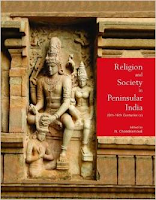by R. Sidda Goud &
Manisha Mookerjee (eds.)
2015, Hardcover, isbn 9788184249774
pp. 288,
Price US$ 25.67 (including Air mail
shipping)
About the book :
This edited book is the outcome of the International Conference
on ‘China in Indian Ocean Region’, held on 13th–14th November 2014, organized
by UGC Centre for Indian Ocean Studies, Osmania University, Hyderabad. Indian
Ocean, third largest ocean in the world surpasses the Atlantic and Pacific
Oceans as the world’s largest and most strategically significant trade
corridor. Indian Ocean Region (IOR) which is surrounded by Africa, Asia and
Australia serves as a maritime highway linking trans-continental human and
economic relationships. Being the world’s most populated region, one third of
the world’s bulk cargo and around two thirds of world’s oil ship tankers pass
through it. China’s interest in the Indian Ocean Region (IOR) can be traced
back to the early 1960s. Ever since Beijing has been increasingly deepening its
presence in the IOR for a variety of reasons—oil, trade, security, etc., over
30 per cent of China’s seaborne trade worth about US $300 billion transits
across IOR. Sharing a quarter of the world’s population, China faces ever
increasing demand for energy. China has little choice but to look beyond its
borders for its energy needs. About 77 per cent of its oil imports are sourced
from West Asia and Africa and these are transported through the Indian Ocean.
Thus China’s dependence on the Indian Ocean continues to grow for energy
imports from the Gulf, to import resources from Africa and trade with Europe.
With China steadily spreading its footprints in the Indian Ocean Region with
increasing military presence and with the rapidly growing Navy being equipped
with warships, destroyers and nuclear submarines, this book analyses in depth
growing Chinese influence in Indian Ocean Region (IOR), Geopolitical Interests
of China, Security and Economic implication for India. This, volume will be of
considerable interest to the students and scholars of international relations
in the contemporary situation.





